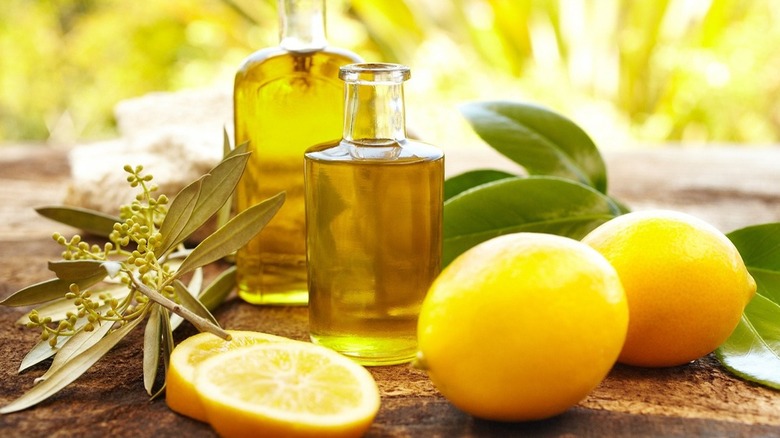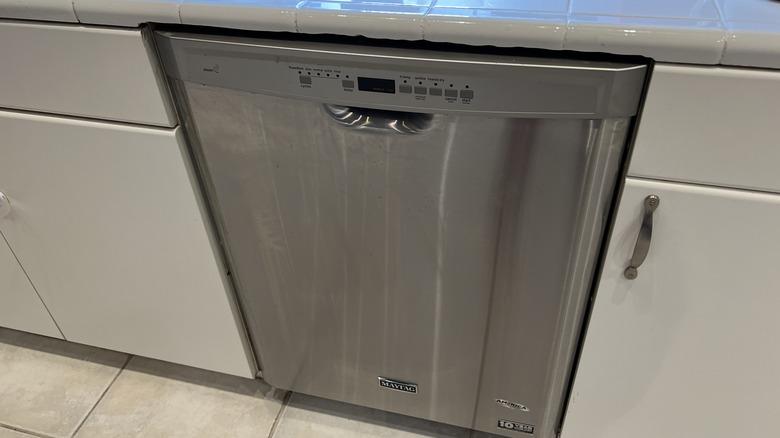Lemon Oil Is The Secret To Sparkling Stainless Steel
Stainless steel appliances are often found in the most upgraded and up-to-date kitchens, providing a splash of luxury to any common household appliance. Unfortunately, upkeeping the shiny finish is sometimes difficult, prompting a number of internet queries from those looking to make their refrigerator, stove, or dishwasher sparkle like the day it rolled off the storeroom floor. As it turns out, an easy trick for making stainless steel sparkle is lemon oil. In fact, this is just one of many lemon hacks that allow you to keep your home fresh and clean.
In order to properly clean stainless steel, prepare a cleaning solution by mixing a 1-1 ratio of white vinegar and water in a spray bottle. Once you've used this solution to perform a deep clean, use a few small drops of lemon oil to bring out the stainless steel's natural shine. This method should help prevent streaks and fingerprints longer than the standard cleaning method, all while keeping your appliances gleaming and fresh.
Does anything else work as a lemon oil substitute?
Lemon oil is a citrus-based compound that contains a delightful, fruity aroma and a beautiful sheen sure to leave your surfaces shining. However, if you have trouble finding it in stores and don't want to make your own blend at home, one simple alternative works just as well: Swap out the lemon oil for olive, and you can still achieve a nice shine on your stainless steel, just without the fresh citrus scent.
As simple as this hack is, there's still one mistake you want to avoid with lemon oil: Don't use an excessive amount of either lemon or olive oil when cleaning, as it could make your surfaces greasy. For the best results, carefully pour a few drops onto a dry cloth before wiping your appliances down, then use a microfiber cloth to soak up any excess liquid spread across the surface. If you have a preferred scent you'd like to fill your home, such as lavender or rose, you can easily utilize most scented essential oils for a similar effect.

